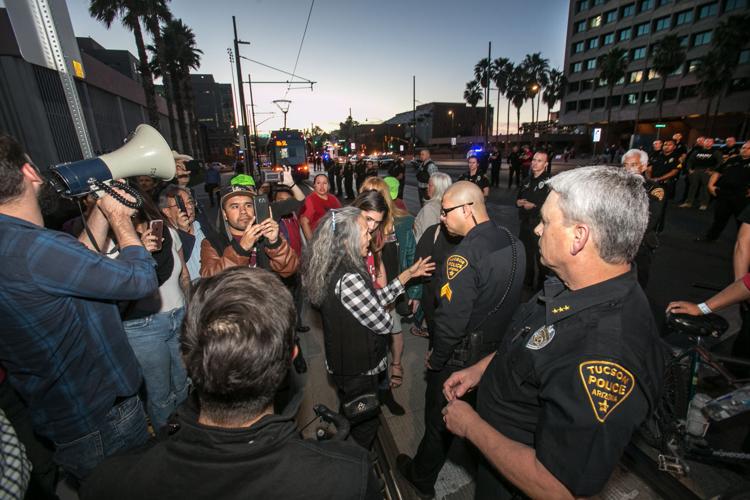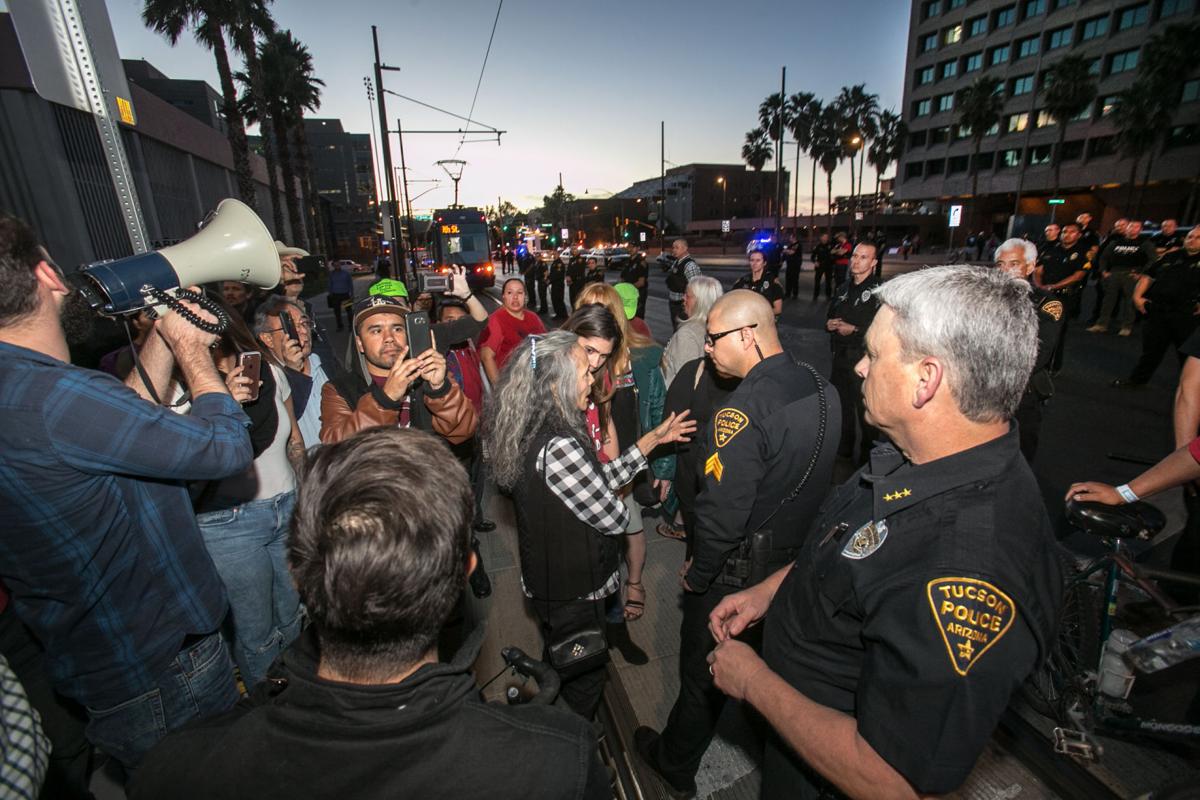A segment of society is eagerly embracing the conspiracy theory that protests against President Trump are paid for by George Soros or left-wing groups.
It’s easy to understand why some Trump supporters would believe stories like that. If they don’t, they’ll have to accept that there is massive, nationwide opposition to the president and his policies. That’s a hard truth to face.
It was in that spirit of denial that the majority Republicans in the state Senate passed the absurdly unconstitutional and partisan SB 1142 Wednesday. It tries to turn organizing protests into the crime of racketeering — if someone at the protest damages property or gets violent. In essence, it’s a ham-handed, obvious effort to squelch protests by people on the left.
If it becomes law — and you should call your state representatives to be sure it doesn’t get that far — it will also become a tremendous waste of money. A federal court would inevitably find the law unconstitutional because it so clearly violates the First Amendment rights to freedom of speech and assembly.
But still this episode holds some lessons for Trump opponents, especially those on the hard edge of the left, if they’re willing to learn.
The main lesson is: Supporters of Trump want to use your protests to bolster him. To the extent you fight police, cause damage or even cause traffic jams, you’re helping Trump, not hurting him. In other words, you’re aiding mass-deportation efforts, among other policies.
This came to mind after the Feb. 16 protest downtown, one of several that have occurred lately but the only one that turned hostile. When the crowd broke away from the usual protesting grounds at the federal building and began walking eastbound up the traffic lanes on West Congress, a short, sharp melee with Tucson police ensued.
Shorthanded police parked an SUV in the path of the protesters, pointing and shouting that they needed to move to the sidewalk. Some protesters refused and kept going as they did a call-and-response chant: “Whose streets? Our streets!”
It got messy when police arrested one man, David Leon, and the crowd pressed in. As a couple more arrests ensued, police used pepper spray on members of the crowd who circled them. At least one person was taken to the ground.
I can imagine the feeling of righteous outrage that these mostly young protesters felt. I’ve been there and have known the taste of tear gas in places as far south as Ecuador. For some of us, that sort of conflict can be a gas, so to speak.
But it doesn’t help in the fight against Trump’s policies. Consider that in the latest poll, a McClatchy-Marist product that came out Thursday, 49 percent of Americans surveyed said they disapproved of the job he’s doing, while 41 percent said they approved. This is one of the better outcomes for Trump in recent polls. Amazingly, 58 percent of those surveyed said they are embarrassed by Trump’s conduct, versus 33 percent who said his actions make them feel proud.
In other words, a large swath of the public is on the protesters’ side. That was evident from the more than 1 million people who turned out nationwide, 15,000 of them in Tucson, for protests the day after inauguration.
Even the Tucson police could be viewed as potential allies when it comes to resisting some of Trump’s immigration enforcement efforts. Chief Chris Magnus has made clear he is not interested in having his officers join federal deportation raids. The rank and file are people and could be drawn to your effort or pushed away.
When there’s conflict with police, though, that helps the forces who would deny the legitimacy of the opposition to Trump. It gives ammunition to legislators who, even though they proclaim themselves constitutionalists, would restrict the rights of freedom of speech and assembly. If the point is to win, the focus has to be on the bigger prize.
Bauserman back
Christine Bauserman has worked in local GOP politics for many years, running campaigns for some winners, some losers. She never took a better gamble then when she went to work for Trump’s campaign in Arizona last year.
The reward? Now Bauserman, who was in town last weekend, is working in Washington, D.C. Her job: special assistant to the secretary of the Interior Department.
The only problem? There is no interior secretary to assist yet. Trump has nominated U.S. Rep. Ryan Zinke of Montana as his secretary, but the Senate is not going to take up the nomination until March. In the meantime, Bauserman told me, she has been learning the ropes, going to meetings and debriefings, and reporting to the chief of staff, who is acting secretary until Zinke is confirmed.
Ptak leaves McSally
The loyal spokesman to U.S. Rep. Martha McSally, Patrick Ptak, is leaving her office and the many controversies over town halls behind.
He’s joining Gov. Doug Ducey’s office as a spokesman. Tucsonan Daniel Scarpinato, widely known as the governor’s spokesman, will remain in the governor’s office as deputy chief of staff for strategic planning and communications.
Ptak has worked both on McSally’s campaign and in her congressional office at different times.







